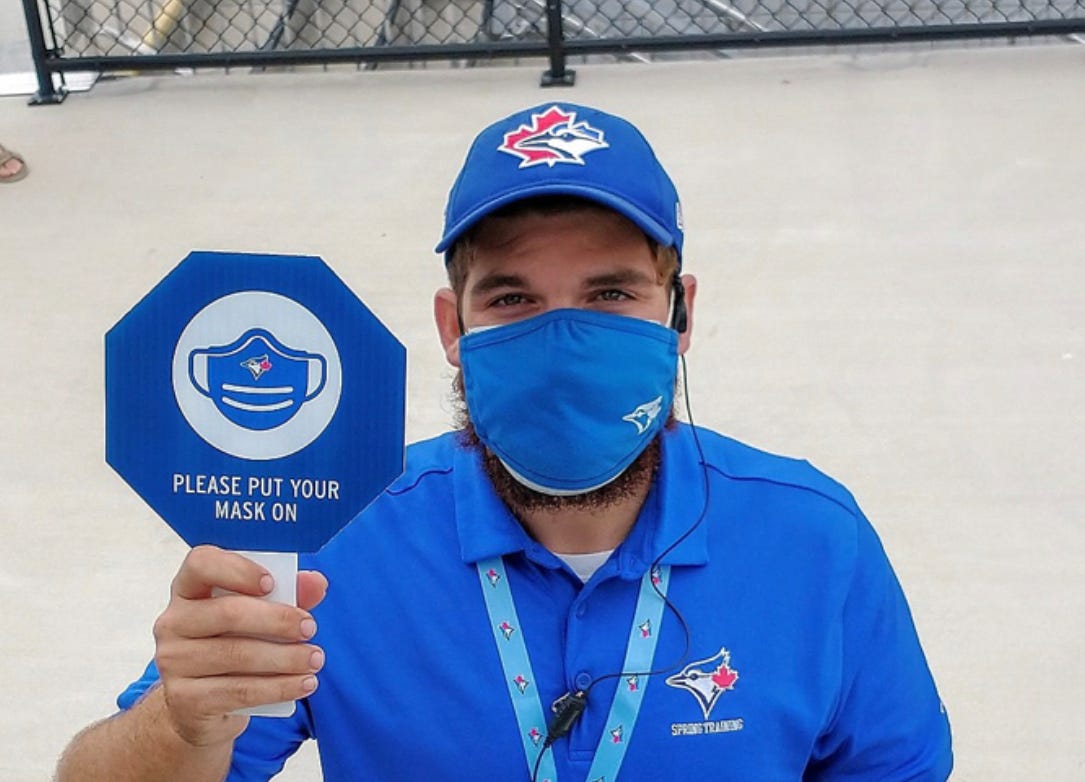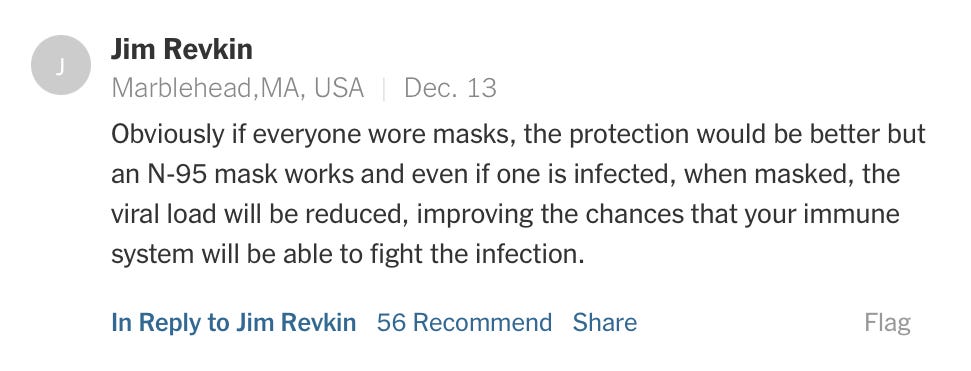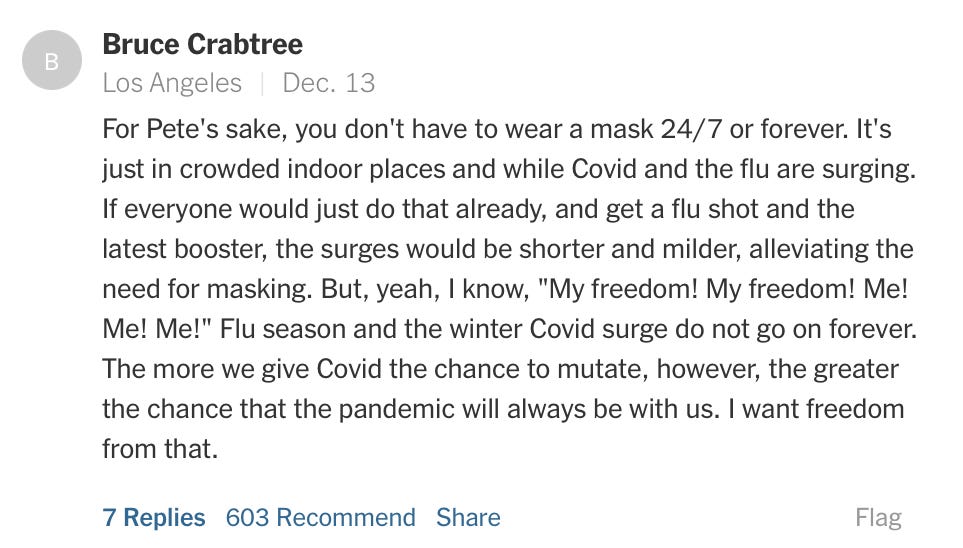The New York Times explains to their sad, socially isolated readership why it’s time to mask up again, however stupid they feel being the absolutely last people to bother
Long-time readers may remember that I can’t write as often in December, because it’s a month of important deadlines in my other life as a journal editor, but I hate letting two days go by without a post, and also I can’t stop laughing at this hilarious New York Times article on Why It’s Time to Wear A Mask Again. The generally excellent Vinay Prasad already caught them citing as “strong evidence” for mask efficacy, this study, which fails to find that masks have any significant effect on rates of influenza infection. Just link to anything and hope nobody notices, Times bros.
The worst, though, is at the very end, when the mask brigade start to reveal a little too much about themselves and their readership:
“Frankly, to prevent transmission, neither antivirals nor vaccines have done a great job,” said Dr. Abraar Karan, an infectious disease fellow and postdoctoral researcher at Stanford Medicine. “What prevents transmission is actually masking and likely air filtration.”
When weighing when and where to mask, Dr. Madad recommended paying attention to the “Three Cs”: close contact, crowded spaces and confined places with poor ventilation. The experts urged wearing masks while traveling on planes and public transportation, and they strongly suggested doing it while out shopping for groceries and gifts. For smaller holiday parties with people you know, it’s fine to forgo masks if guests test beforehand and stay home if they’re feeling rundown.
Realistically, not everyone in the United States — or a certain city — will wear a mask. In fact, you might find yourself the only person in a store or on a plane who’s wearing one. Don’t let that discourage you. For one thing, remember that no one is thinking about you as much as you think they are. In social psychology, this is called the spotlight illusion, said Gretchen Chapman, a professor of social and decision sciences at Carnegie Mellon University. “I may feel that everyone’s staring at me because I’m wearing a mask, but chances are that’s like the 11th thing on their list to worry about,” she said.
What’s more, Dr. Chapman said, “There are lots of situations in life where we do something that makes us feel awkward, but if we think it’s important enough, we do it anyway.”
The poor pandemic faithful started out masking to save the lives of the elderly and vulnerable, but now they find themselves in an unending hygiene prison from which the only escape, is admitting that they’ve behaved like fools for the past three years. If they can’t do that, a bleak future awaits them, of persisting as the solitary idiotic masker in the grocery store and on the train, of demanding all their acquaintances produce negative tests before they’re allowed to come to any party, and, above all, of never being able to relax around other people. How living like this is better than occasional virus infections, nobody can explain.
Oh, and the comments are a thing to behold.
Some readers have developed all kinds rationalisations for the failure of masks to do anything, along with strange pretzel logic that explains why continuing to mask is still so important even if it doesn’t prevent infection.
Others have very exotic understandings of how viruses evolve, and see in masks the possibility of a freedom from pandemics, which is of course more important than your freedom to breathe normally in public.
But above all there are just the countless comments from people who love masks, who mask everywhere all the time, who mask especially at the gym, and think it’s all fantastic.
Often I despair for humanity.








For the record, I am 100% looking at you and judging you if you're wearing a mask in public.
Jason says "wearing a mask is a no-brainer". Excuse me for my poor English, but does it mean the same as no-brain?